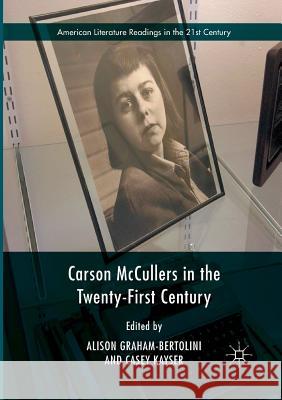Carson McCullers in the Twenty-First Century » książka
topmenu
Carson McCullers in the Twenty-First Century
ISBN-13: 9783319820705 / Angielski / Miękka / 2018 / 279 str.
Kategorie:
Kategorie BISAC:
Wydawca:
Palgrave MacMillan
Seria wydawnicza:
Język:
Angielski
ISBN-13:
9783319820705
Rok wydania:
2018
Wydanie:
Softcover Repri
Ilość stron:
279
Waga:
0.36 kg
Wymiary:
21.01 x 14.81 x 1.6
Oprawa:
Miękka
Wolumenów:
01
Dodatkowe informacje:
Wydanie ilustrowane











